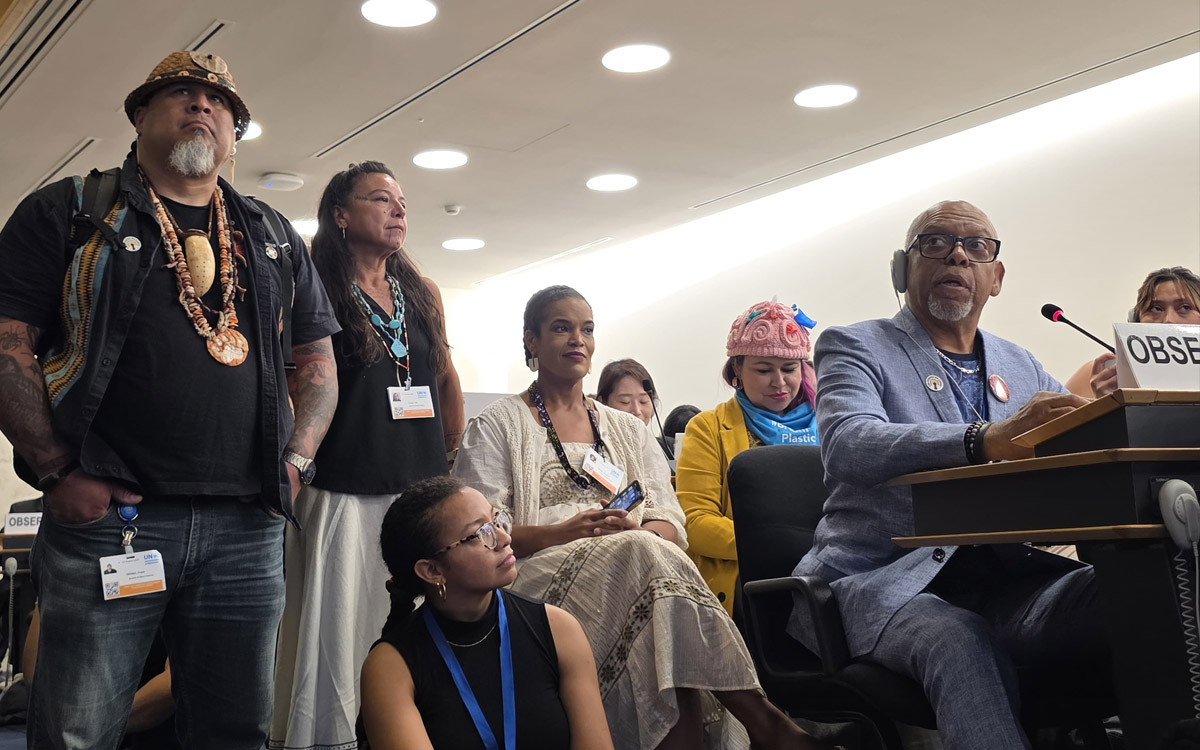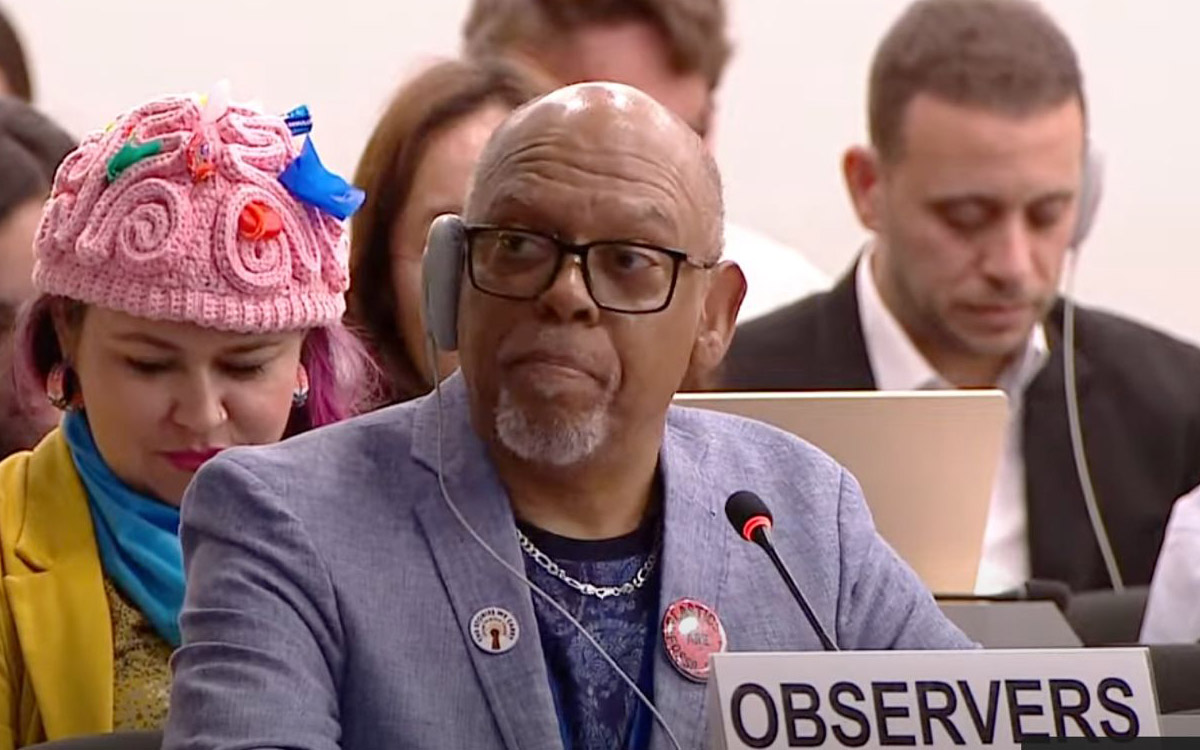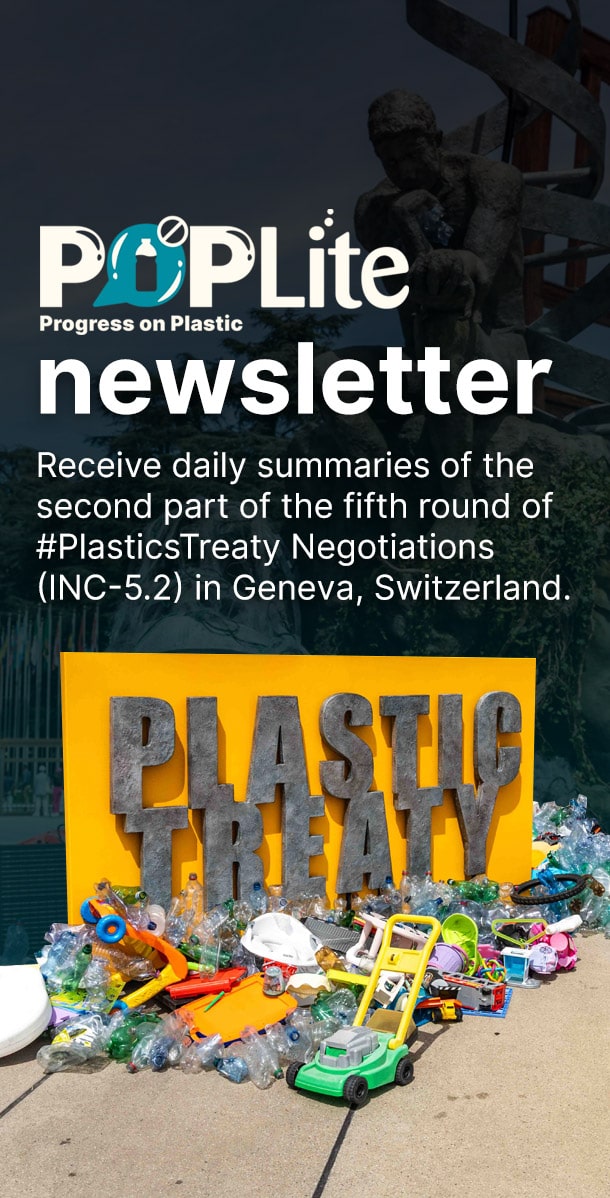“Honorable Chair, Esteemed Delegates —
My name is John Beard Jr. and I am speaking on behalf of the Break Free From Plastic movement and United States Environmental Justice Delegation. I come to you from the belly of the beast in Port Arthur, Texas - a “cancer cluster” thanks to the petrochemical industry. Port Arthur is on the frontlines of toxic plastic production because of a history of discrimination against communities of color and low-income communities. This human rights injustice stretches all the way back to the dawn of European colonialism and the Trans-Atlantic Slave Trade.
Let’s be clear: these negotiations have been captured by the fossil fuel and petrochemical industries. Their unchecked production of plastics is accelerating a crisis that jeopardizes the climate, biodiversity, human health, and the planet’s ability to sustain life. Without decisive action and significant reductions in plastic production, the harm already experienced by countless communities like mine will only intensify.
A treaty that does not cap plastic production, eliminate toxic chemicals, and ensure a just transition for those most impacted is a treaty destined to fail. We must confront the ongoing environmental racism experienced in communities like mine and stop the scourge of waste colonialism in the global south. We must reject toxic waste-to-energy schemes and polluting technologies like so-called chemical recycling, prioritizing instead the development of safe, toxic-free reuse and refill systems and the rights of waste pickers, Indigenous Peoples, and frontline communities.
While we should be guided by consensus, when consensus cannot be reached, countries must have the ability to vote on substantive issues, ensuring that deadlocks do not continue to derail progress.
While my community is on the frontlines of environmental injustice and toxic pollution, micro and nanoplastic poisons people no matter how far from the front you may live. The time for incremental steps is over.”





